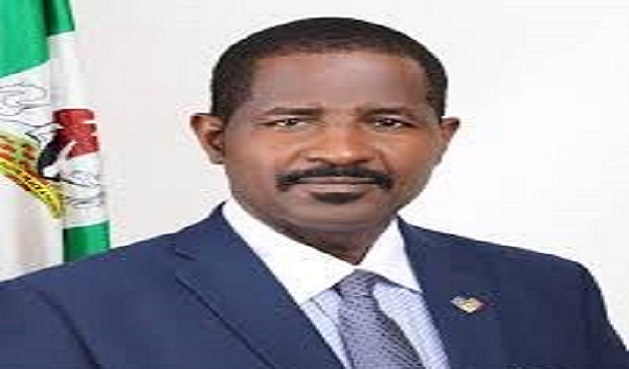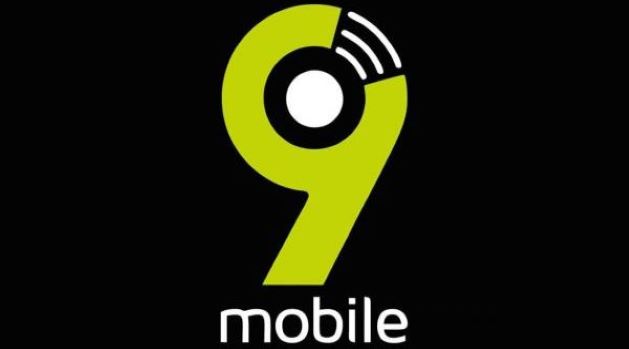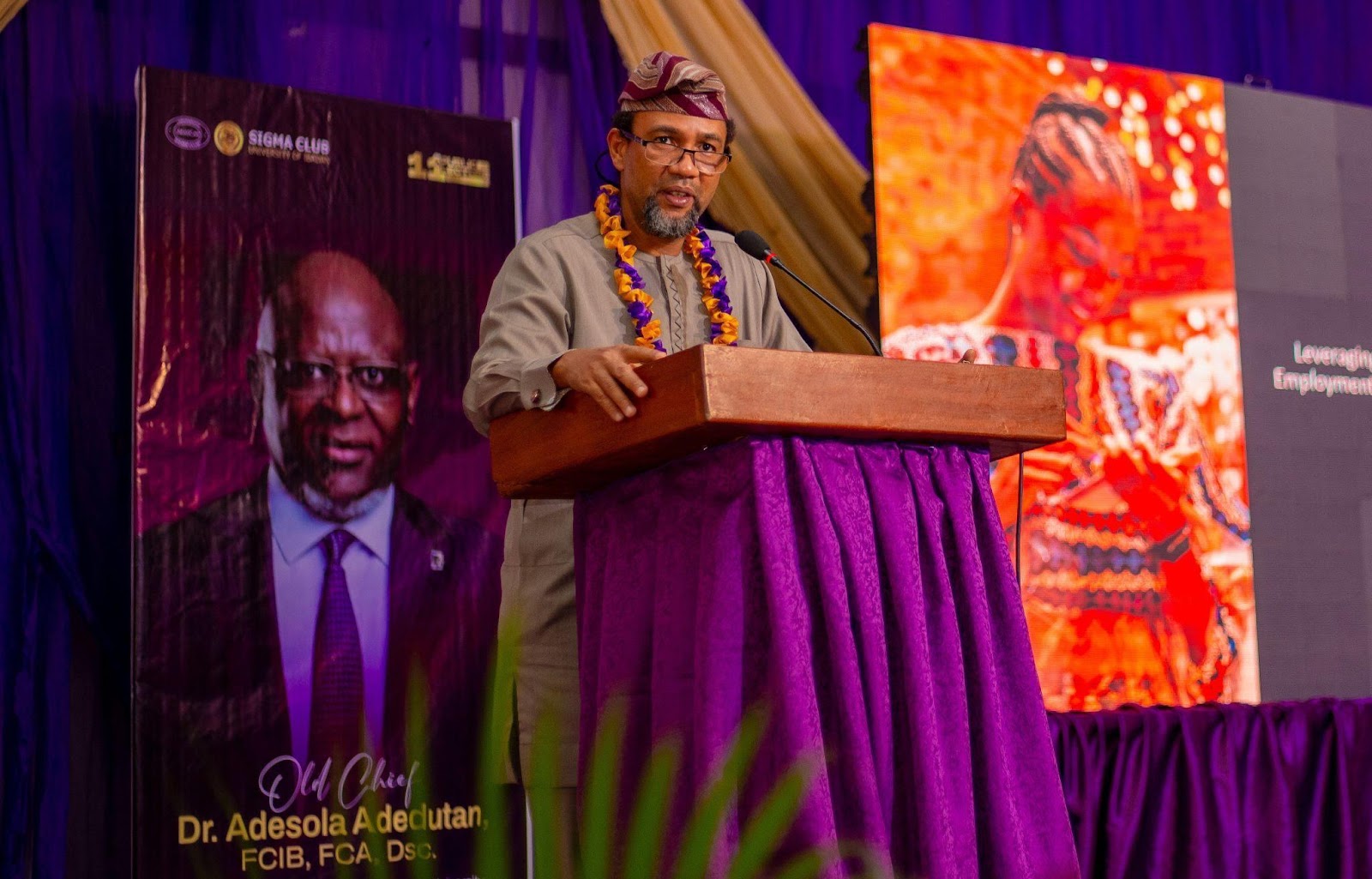Telecom
Gwandu Urges African Countries to Unite for 600MHz Spectrum Allocations

Dr. Bashir Gwandu, former Acting Executive Vice Chairman and CEO, Nigerian Communications Commission (NCC) and former EVC/CEO, National Agency for Science and Engineering Infrastructure (NASENI), has urged African countries to unite and work together to secure 600megahertz (MHz) band spectrum allocations.

The independent telecom expert stated this at the just concluded 9th Sub-Sahara Spectrum Management Conference 2024, held in Nairobi, Kenya on 6-7 November, organised by Forum Global on the third theme: “From WRC-23 to WRC-27- Emerging Landscapes & Technologies and the Path Ahead.”
Dr. Gwandu who held various chairmanship positions at the both the ITU and Commonwealth including the ITU Radiocommunications Advisory Group (the RAG), The Joint Task Group, and Commonwealth ITU Group (CIG), made the call during his opening remarks on the 600MHz spectrum discussions.
While making a presentation on the session: “The shape of Post-WRC spectrum ecosystems”, he called for cooperation among African countries at the forthcoming World Radiocommunications Conference 2027 (WRC-27) to enter Footnote 5.307A, which are radio regulations used to make spectrum allocation for a country or some countries.
Dr. Gwandu who played a key role in founding the ATU (African Telecommunications Union) WRC coordination meetings had expressed disappointment that the continent’s focus on collaborative efforts was waning.
At the core of the discussions was the 600MHz (3GGP n71) band, a key frequency range that many countries worldwide are increasingly allocating for IMT to support 4G and 5G networks. While several nations in Regions 2 and 3, as well as some in ITU Region 1, have designated this band for mobile, some African countries are not yet ready to make the switch to co-primary allocation.
Eleven African countries had sought request at the WRC-23 for primary mobile allocation of spectrum and IMT identification in the 614-694MHz band, but only Egypt was granted while countries like Rwanda, Guinea, Benin Republic, and Cameroon, blocked requests from 10 other African nations with similar aspirations.
The 10 countries that were blocked include Nigeria, Senegal, Mauritania, Libya, Chad, Gambia, Sudan, Namibia, Somalia, and Tanzania. Dr Gwandu posited that fighting for status quo to remain or ‘No Change’ in this case is akin to refusing an available front seat and fighting for a back seat.
“Therefore, colleagues, something clearly went wrong at WRC23, and we as Africans need to address it. We must work together, have positive dialogue on challenges, and optimize the use of opportunities.
“Reasonable countries have always found solutions to accommodate needs of their neighbours instead of blocking them,” he said, urging African Telecommunication Union (ATU) to remain effective by following its rules.
He said the 600MHz band issue is clear: the world is moving towards IMT in this band, with some countries ready now and others later. “Eventually, most of us will adopt it. Many region 2 and Region 3 countries have taken primary allocation to mobile in the band, and even in region 1, a number of countries have already changed the use status of this band to include either primary or secondary mobile,” he said.
Dr. Gwandu urged that those not ready not to obstruct others that are prepared to move forward. Countries develop at different rates, and the ITU Resolution 26 that requires consent before amending footnotes is intended to promote harmonization, not to delay a clear direction, or block progress, he said, adding that there is need to provide regulatory certainty to different industries.
According to him, if many countries in other regions and Africa have not taken the steps to upgrade the mobile service in the band, “then yes, we can try to convince colleagues in Africa to hold, but, this is not the case. The direction is now clear – 600MHz band will be allocated on primary basis to mobile. It is almost black and white,” he added.
“When we meet as a family, we must be honest with ourselves. Some of us who helped to initiate the ATU WRC coordination meetings are disheartened by how we, as Africans, continue to fight each other in order to win the occupancy of the back seat, whilst neglecting each other’s interests.
“When making decisions, we must consider the unique circumstances of each country, such as geographical size, population and data demand, the capital expenditure required for coverage, the dispersed nature of our rural settlements, the 50 per cent urban to rural connectivity-divide in Africa and the energy costs to power the high throughput systems in rural areas,” he added.
The telecom guru said these factors differ for each country, and thus the frequency allocation solution for a smaller country like Rwanda or Benin cannot be the same for larger nations like Nigeria or Namibia.
Telecom
Court to Decides on 9Mobile Ownership Tussle September 24

Federal High Court in Abuja has fixed September 24 to rule on several applications in the case of Abubakar Ismaila Isa, a businessman, who claims that his 43 million shares were allegedly transferred to Emerging Markets Telecommunication Services Limited, operating under the trade name 9mobile, without his consent.

The matter before Justice Mohammed Umar on Wednesday, was filed by Isa’s legal team led by Femi Atteh, SAN, in suit number FHC/ABJ/CS/1971/2024.
The plaintiff seeks an order declaring him the “beneficial owner of the 43,000,000 (forty-three million) ordinary shares held in trust for him by the 1st Defendant (Seltrix Limited) in the capital of the 3rd Defendant (Teleology Nigeria Limited).”
He accused Seltrix Limited of purportedly transferring the said shares to 9mobile without his consent, resulting in the alleged illegal change of control of 9mobile to LH Telecommunication Limited by the Corporate Affairs Commission and Nigerian Communications Commission.
Joined as defendants in the suit are Seltrix Limited, Hayatu Hassan Hadeija, Teleology Nigeria Limited, Mohammed Edewor, Emerging Markets Telecommunications Limited, CAC, NCC, LH Telecommunication Limited and General Theophilus Yakubu Danjuma (Rtd) (first to ninth defendants).
A counter-affidavit sworn to and filed on behalf of Seltrix Limited, Hadejia had described the plaintiff’s application as a reckless abuse of the court process.
He urged the court to dismiss the application and award substantial costs against the plaintiff.
He also demanded concrete evidence of any trusteeship arrangement involving him or Seltrix Limited concerning the alleged N43 million ordinary shares in the capital of the third defendant, Teleology Nigeria Limited, or any matter related to the suit.
Hadejia stated that the plaintiff’s motion, dated 27 January but filed on 28 January, was a fabrication designed to mislead the court.
At the resumed hearing, Michael Aôndoakaa, SAN, counsel for Teleology, 9mobile, and others, drew the court’s attention to his preliminary objections, asking the court to strike out the case for “being statute-barred” as it was filed out of the stipulated time required.
Telecom
MTN, 9mobile Commence Ground-breaking National Infrastructure Partnership

In a landmark move set to redefine Nigeria’s telecom landscape, MTN Nigeria Communications Plc and Emerging Markets Telecommunications Services Limited (9mobile) have officially announced the rollout of their national roaming agreement, approved by the Nigerian Communications Commission (NCC).

The three-year agreement enables 9mobile subscribers to roam seamlessly on MTN Nigeria’s expansive network, significantly extending 9mobile’s coverage and improving service quality for its customers. The partnership signals a shift toward greater industry collaboration, aligning with the NCC’s vision for a more inclusive and efficient digital ecosystem.
Beyond infrastructure sharing, the agreement drives greater operational efficiency, stronger connectivity, and an enhanced user experience. It also paves the way for deeper collaboration between the two telcos, most notably a proposed spectrum leasing deal, in which 9mobile will lease its 900MHz (5MHz) and 1800MHz (15MHz) bands to MTN for three years, further strengthening MTN’s network capacity and service quality.
“This partnership marks a bold resurgence for 9mobile,” said Obafemi Banigbe, CEO of 9Mobile. “It empowers us to meet the needs of our customers, especially youthful and enterprise users, by delivering consistent, high-quality service as we roll out city by city in the weeks ahead.”
Banigbe acknowledged the leadership of Dr. Aminu Maida, Executive Vice Chairman and the leadership of the NCC, for enabling such progressive industry collaboration, and Dr. Bosun Tijani, Honourable Minister of Communications, Innovation, and Digital Economy, for his advocacy of a resource-efficient, consumer-first telecom ecosystem.
“In today’s telecom environment, access is more strategic than ownership,” Banigbe added.
“Access to infrastructure is now more important than ownership,” Banigbe added. “Rather than duplicating networks, we’re investing in access that is commercially viable and sustainable. Network infrastructure typically accounts for 70–75% of an operator’s costs, savings here mean we can reinvest in innovation and customer experience. At 9mobile, our mantra is simple: build infrastructure where necessary, share it where possible,” he concluded”
Dr. Karl Toriola, CEO of MTN Nigeria, described the agreement as a milestone for the sector, “This collaboration underscores our commitment to industry innovation, customer-centricity, and support for the NCC’s goal of a fully connected Nigeria,” said Toriola. “It reflects our shared value philosophy, prioritizing partnerships that benefit the entire ecosystem.”
Toriola also praised Dr. Tijani’s efforts in promoting meaningful collaboration as a key driver of digital access, service quality, and nationwide inclusion.
This pioneering agreement sets a new benchmark for infrastructure sharing in Nigeria. It exemplifies how competitors can collaborate to address systemic challenges, reduce redundancies, and collectively transform the industry—ultimately delivering broader coverage, better service, and faster access to emerging technologies for Nigerian consumers.
Telecom
Karl Toriola Champions Digital Education for Employability @Sigma Club Lecture

MTN Nigeria CEO, Dr Karl Toriola delivered a strong call for digital skills adoption and curriculum reform at the 11th Public Lecture of the Sigma Club, University of Ibadan, on Thursday, July 3, 2025.

Speaking on the theme, Leveraging Technology & Digital Education for Mass Employment, Wealth Creation and Poverty Alleviation, Toriola said technology and education can drive large-scale transformation by unlocking access to both global and local job markets. He explained that digital tools enable entrepreneurship, remote work, and access to essential services, especially in underserved areas.
He pointed out several barriers: the infrastructure deficit caused by high deployment costs, poor electricity, and insecurity in rural areas; digital literacy and education gaps; gender and regional disparities; outdated or inconsistent government policies and weak public-private coordination.
Referencing a story about a high-achieving Nigerian doctor, he said, “I saw an article a few days ago about a Nigerian medical student or doctor that qualified simultaneously in [different] specializations of medicine. It’s incredible what some of our people are doing. Our youths are ready. Our systems must be ready too.”
Among his recommendations, Toriola called for expanded digital infrastructure, changes to school curricula, stronger public-private partnerships, and programs designed with gender and cultural awareness in mind. “We must make education employable,” he said. “We have to create the opportunities for students to practice what they are learning with institutions, private-sector institutions that are using those skills of the future.”
Toriola also emphasized that while automation and robotics dominate conversations about the digital economy, there is still significant opportunity in content creation, manufacturing, and agriculture. “Huge opportunities exist in Nigeria. We need to provide the environment for the Nigerian youth to thrive by driving connectivity, changing the curricula to allow our students to acquire the skills that are required in the job market of today.”
He closed with a message of encouragement, saying, “It does not matter however you start. Where you get to at the end of the day is a product of how dedicated, focused and hardworking you are. Never give up. Nigerians have an immeasurable capacity to deliver if given the right opportunities.”
Earlier, Hon. Folajimi Oyekunle, Deputy Chief of Staff to the Oyo State Governor, delivered the welcome address on behalf of Governor Seyi Makinde. He noted that the lecture’s theme was timely and aligned with the administration’s focus on innovation and inclusive development. Citing initiatives such as the Waste to Wealth program, which created 12,000 direct jobs, and the recruitment of 21,000 teachers, he highlighted efforts to improve employment outcomes in the state. He also mentioned that the state’s internally generated revenue had risen to 8.5 billion in the first quarter of 2025, compared to a pre-2019 average of 1.6 billion.
“The government so far has worked in line with all stakeholders to create an enabling environment for job creation, which gives our graduates the opportunity to be employed in government work. As a government, we continue to support and encourage wealth in the state and also to support programs like this, which in one way or the other, gives back to their school,” he said.
Other dignitaries present at the event included the Alaafin of Oyo, Oba Abimbola Owoade; Dr. Gani Adeniran, retired lecturer from the University of Ibadan’s Faculty of Veterinary Medicine, who served as Father of the Day; and Professor Gabriel Ogunmola, Chancellor of Lead City University, Ibadan.
Initiatives like MTN’s recently launched Digital Skills Academy reiterate the company’s commitment to expanding digital access and opportunity. The platform includes a career guidance tool to help users identify and pursue paths aligned with their strengths and market demand. It forms part of the MTN Foundation’s Digital Skills for Digital Jobs programme, which supports the National Digital Economy Policy and Sustainable Development Goal 4 on quality education.

 Telecom2 days ago
Telecom2 days agoMTN Nigeria Debuts Game-Changing CPaaS Platform at NextNow Forum

 Telecom3 days ago
Telecom3 days agoNCC Approves MTN, 9Mobile Roaming Collaboration Deal

 E-Financial2 days ago
E-Financial2 days agoNAICOM Issues New Licenses to SanlamAllianz Life, General Insurance

 News2 days ago
News2 days agoAMCON Confirms ₦100Bn Sale of Ibadan DisCo Amid Legal Disputes

 E-Financial2 days ago
E-Financial2 days agoGTCO to Become First Nigerian Bank to List on London Stock Exchange

 E-Business2 days ago
E-Business2 days agoDomain of Deception as Attackers Deploy Spyware Under Guise of Legal Threats

 E-Financial3 days ago
E-Financial3 days agoWorld Bank Approves Extra $65m for Nigeria’s SPESSE

 E-Financial3 days ago
E-Financial3 days agoEcobank Taps Google Cloud to Deepen Financial Inclusion




























